Guild hosts thousands of online communities.
From small and intimate private peer groups who meet in real life to large mixed groups spanning many countries.
What is an online community?
To understand what an online community is, you need to define the word 'community'.
We're big fans of community. The word suggests connectedness, togetherness, people joining and becoming something bigger than the sum of their parts. It's a positive, warm word.
There are many dictionary and wiki definitions out there, but here's our definition:
"A community is a social unit or group of people who share something in common, whether that is an identity, values, location, religion, a shared goal, roles or interests.
Communities share a sense of place. Whether that's a geographical area or a virtual or digital platform."
So, online communities are groups of people who share something in common AND share a digital platform to gather and communicate - more on what makes for a successful online community in future lessons.
Those digital platforms have changed over time, and will continue to do so.
Where were the first online communities? A short history lesson.
The forebears of today's online community platforms have been around since the early 1970s.
The internet is a series of networked computers and people. By it's very definition, it hosted online communities right from the very start!
We've tried to make sense of these early online communities and today's online community platforms, by categorising them into 4 distinct types:
- Group Chat/Messaging
- Virtual Worlds
- Forums and Bulletin Boards
- Web based communities/Blog networks
- Social Networks
View high resolution version >> Guild's Online Communities Timeline
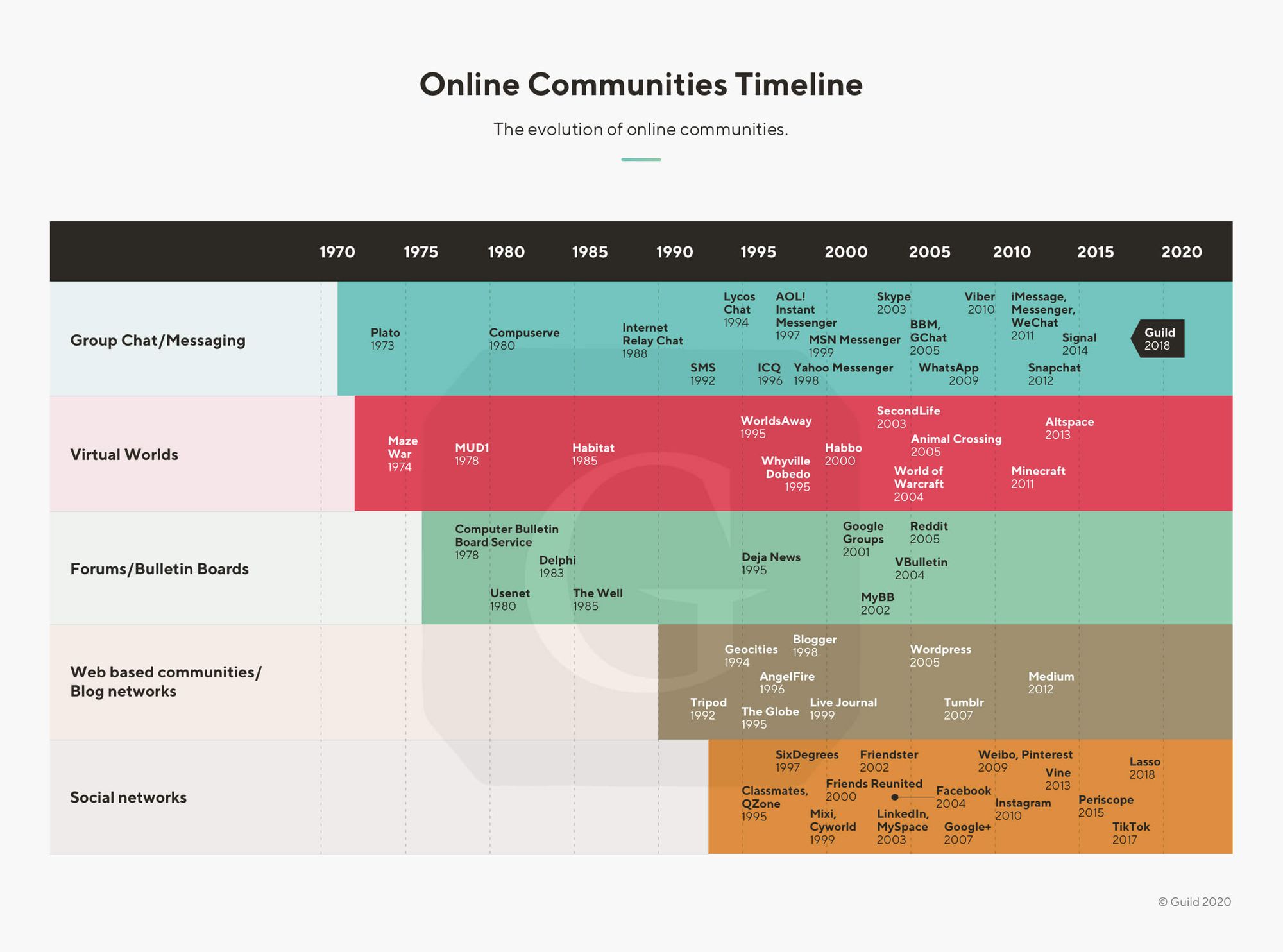
Do let us know if there are other online communities or types of community you think we should add.
View high resolution version >> Guild's Online Communities Timeline
Group Chat / Messaging
From Plato to WhatsApp and Guild today, group chat and messaging is the oldest and now the fastest growth category of online community.
Plato was one of the first University campus-based computer messaging networks, that developed into very early bulletin boards and "term talk" for students and teaching staff in the early 1970s. A lot like Facebook, before Facebook was invented!
Today, chat and messaging online communities can be set up in minutes and are mobile-first. How many of us don't belong to a WhatsApp group?
Businesses are also discovering that messaging communities give them the power to beat the algorithm, whether through Dark Messaging or specially designed professional messaging community platforms such as Guild.
Virtual Worlds
Virtual Worlds are online environments where users create a personal avatar, or profile. They then can explore a virtual world or universe, participate activities and communicate with others. Often these online communities place entertainment, fun, friendship and escapism at the heart of their offering.
Maze World was the first of these online communities, through to the likes of Habbo and Sweden's Dobedo at the turn of the century.
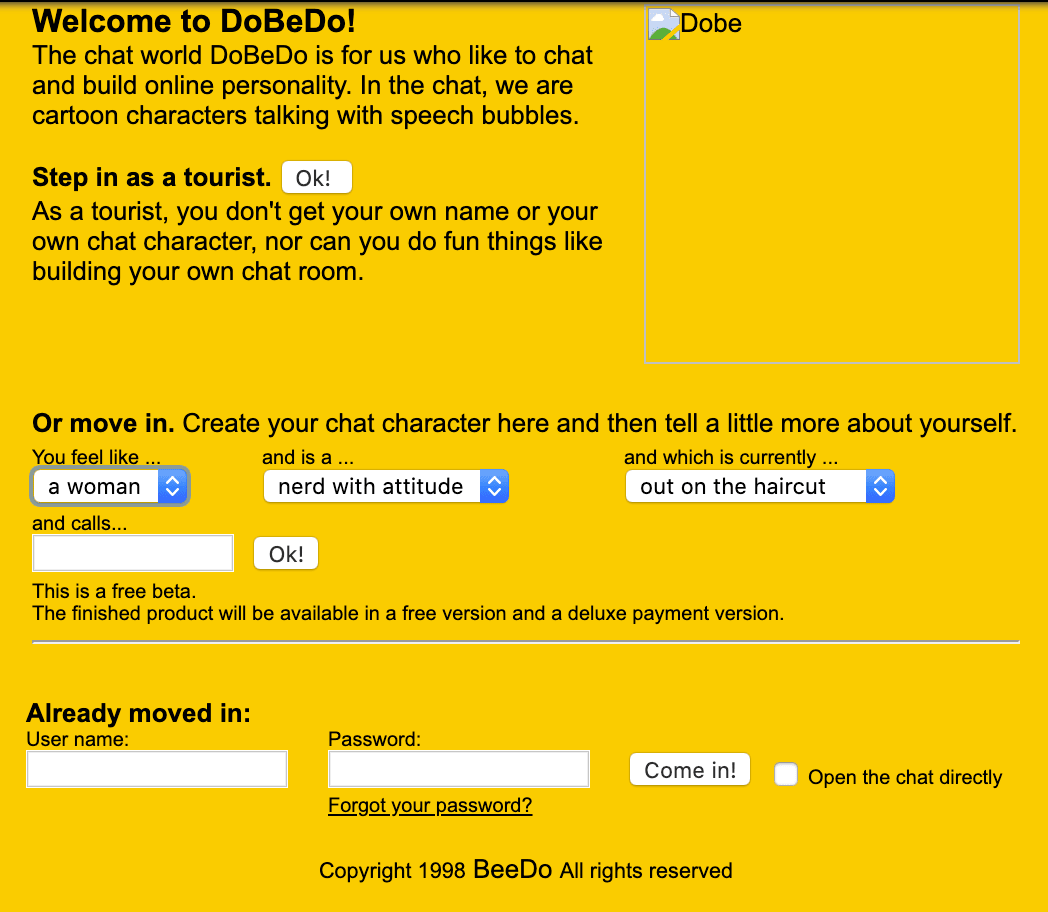
The Second Life virtual world got brands and marketers excited about launching brands, products, books and virtual services in a universe, where literally anything could happen!
I was involved with VIP celebrity red carpet events. There was a memorable Richard Dawkins book launch in Second Life in 2004 where virtual hosts of heavenly angels arrived to make mischief. All manner of shenanigans happened in this virtual world as people and celebrities played with the technology.
Today, you can see all ages creating, exploring and escaping in the most popular Virtual Worlds; Minecraft, Animal Crossing and World of Warcraft.
Forums and Bulletin Boards
These were online communities where conversations took place in the form of posted messages and conversation threads and discussions often within websites. For example, Econsultancy.com's very early digital marketing forums in 2000 or thecybermoms.com, a forum on CyberMom, a US parenting site that billed itself as the '"Net for Moms with Modems".
Many of these forums and bulletin board community messages were pre-moderated by a community moderator before becoming visible.
Usenet was a platform of thousands bulletin boards and forums, covering almost every topic under the sun. It was bought by Google in 2001.
Reddit forums are a direct descendent of the information rich and (usually) friendly, supportive world of Bulletin Boards and forums that may of us early internet users participated in.
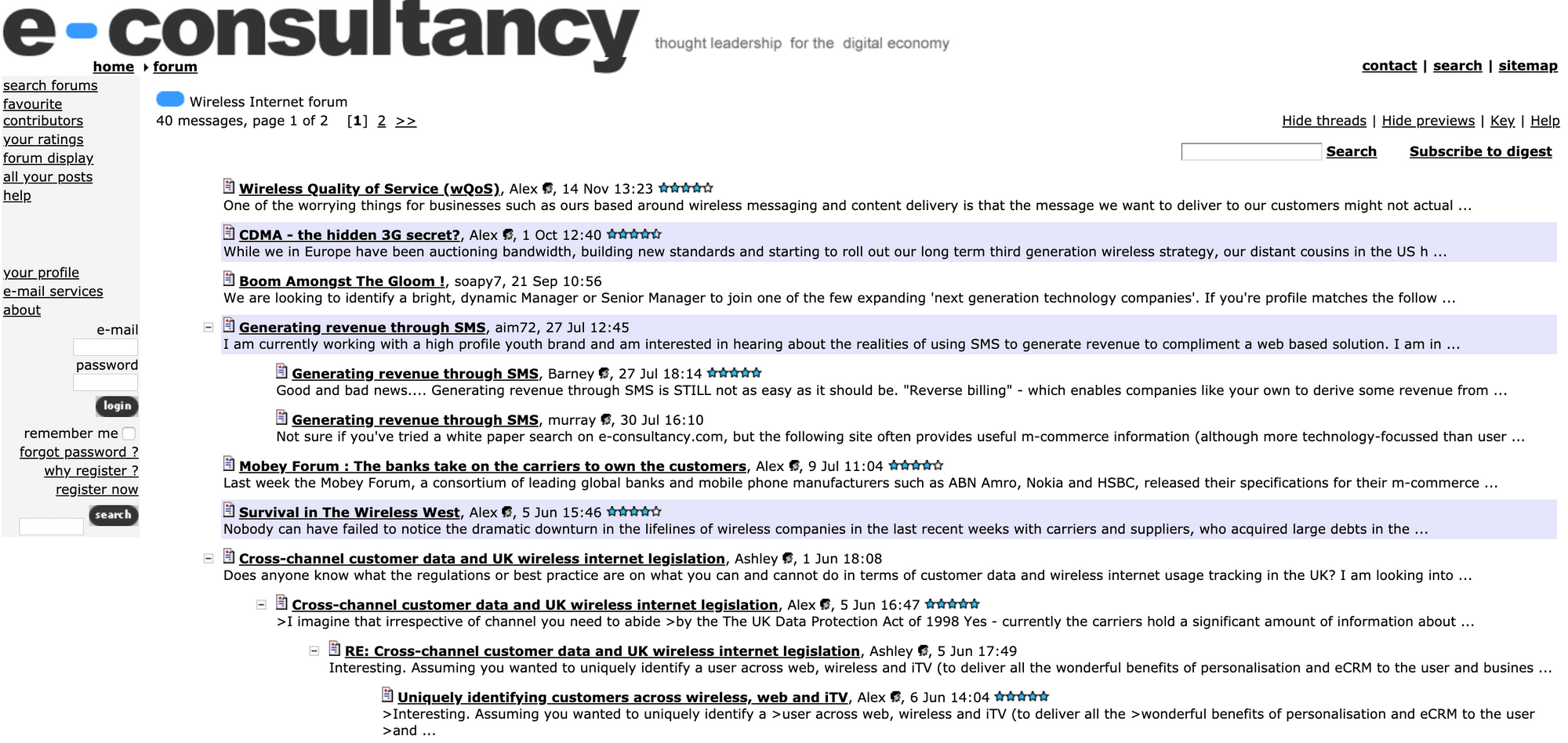
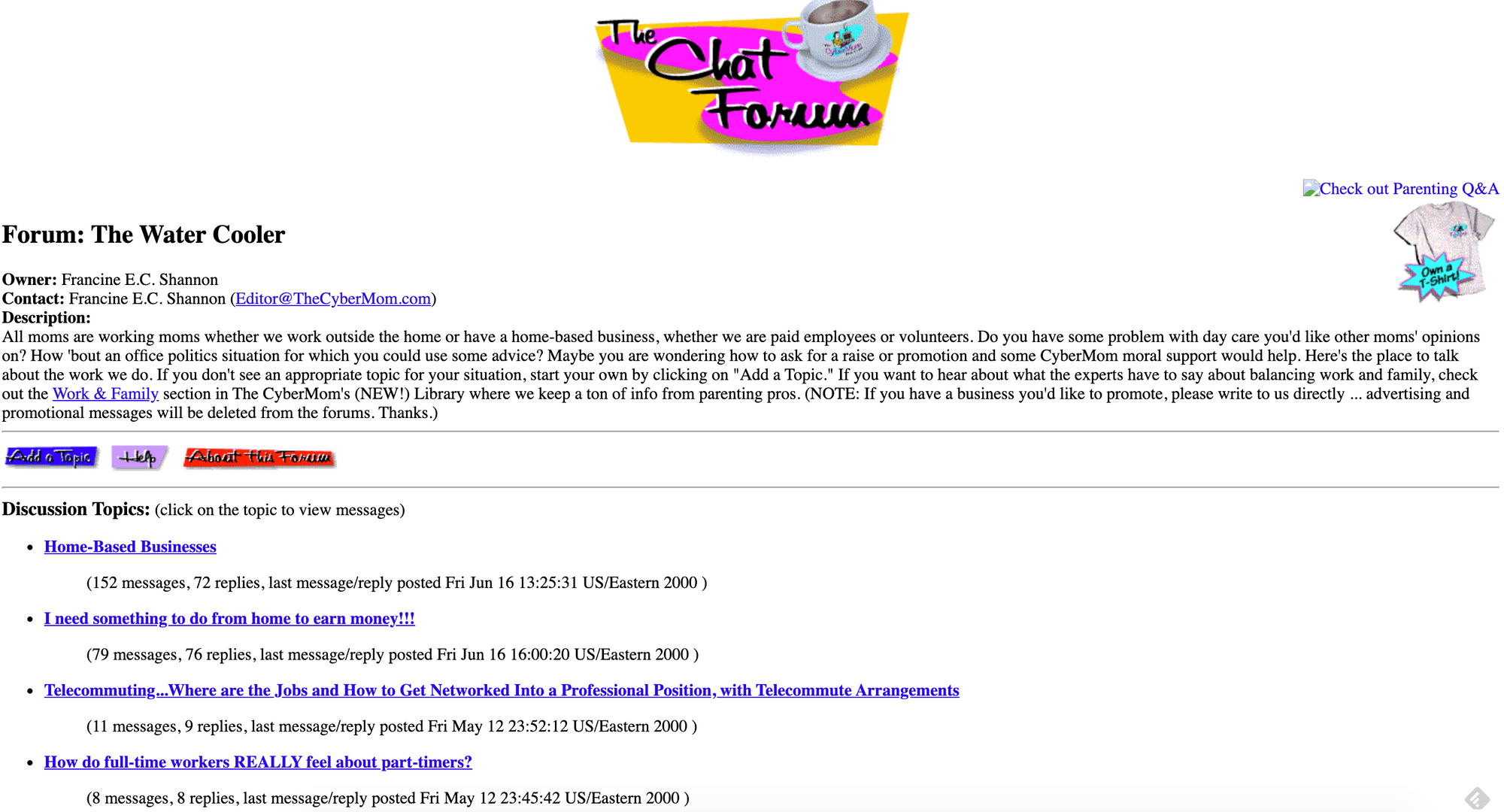
Web based communities/blog networks
These loosely networked online communities grew out of internet properties providing free web hosting, blogging and web publishing tools.
Lycos launched Tripod in 1992. Tripod was a blogging tool, a photo album manager, users could build simple websites and connect to other member 'web logs' or 'blogs' on the Tripod platform.
Along with Geocities and The Globe, these preceded the more familiar blog platforms of the late 1990s and early 2000s such as Blogger, Wordpress and Tumblr. Medium, launched in 2015, is one of the newer examples of a blog community.
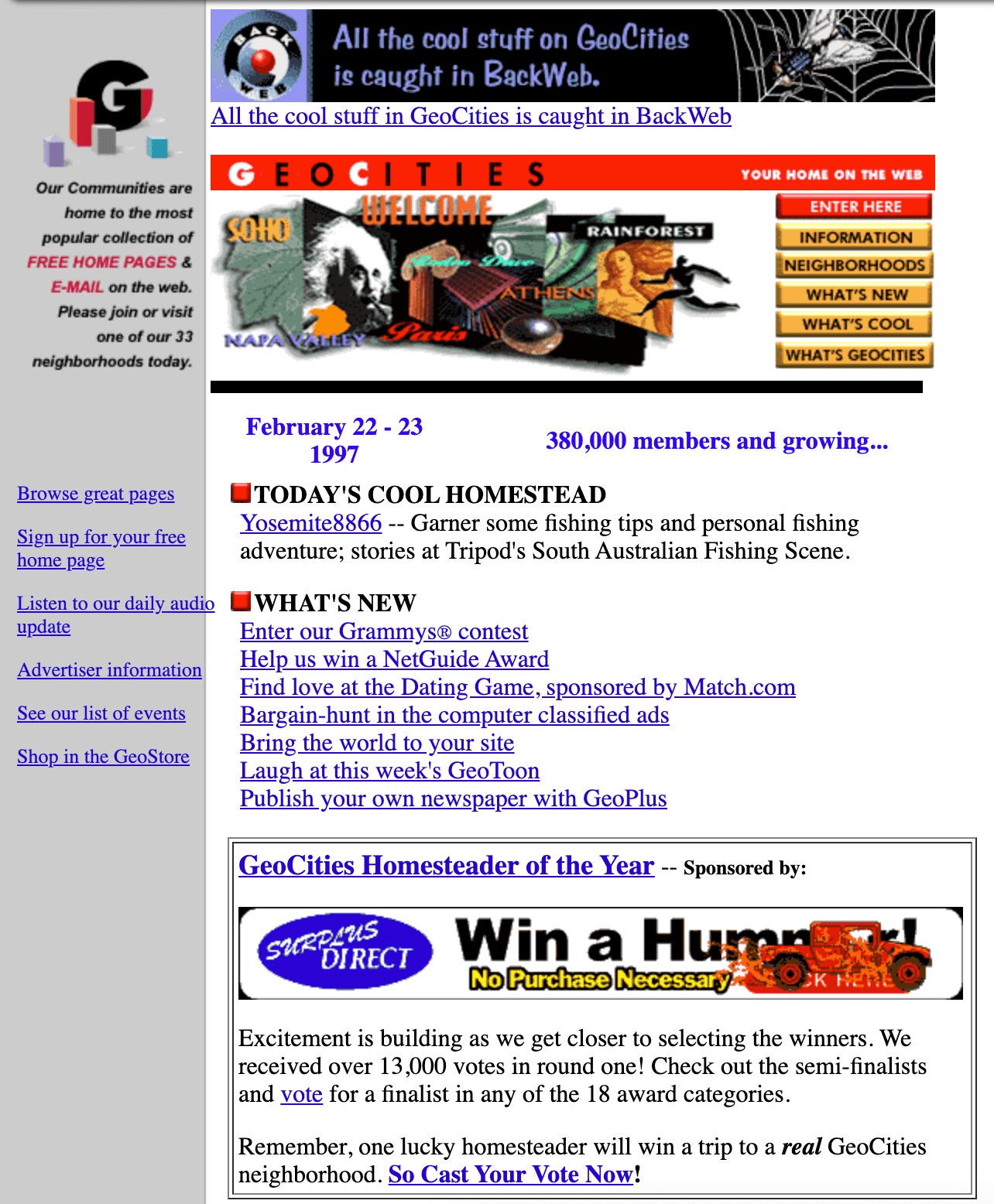

Social networks - are they online communities?
The rise of Social networks such as Mixi, Cyworld, MySpace, LinkedIn and Facebook in the early 2000's meant that suddenly the idea of online or digital communities became attractive to many organisations and brands.
They were able to create and engage with large community of fans and followers in Facebook and LinkedIn Groups, MySpace, Orkut or Bebo in their branded spaces.
But social media platforms are generally ad-funded businesses. Providing software and community platforms for free isn't a long-term strategy that keeps shareholders happy.
In 2012 Facebook ads became available to all through their self-serve ad platform. Within a couple of years, many community strategists realised that they would have to pay-to-play in Facebook or move their Facebook Page community back to Facebook Groups if their community were to stay visible as the algorithms took hold.
LinkedIn Groups used to be the perfect platform to build and engage with professional online communities. For many years, they were the go-to platform for B2B communities.
Now, brands, media and businesses, who invested time and budget in creating large online communities on LinkedIn, are reappraising things.
Ian Jindal, Founder and Editor-in-Chief of Internet Retailing sums up why social networks like LinkedIn are not community platforms:
"LinkedIn’s Groups is a reminder that LinkedIn is not a community platform - it’s a business that monetises the #humblebrag in business as well as our eyeballs and data."
Are you a looking for a better way to build an online community?
Keep a look out for more community strategy training, community events and livestreams/webinars.
You can also draw inspiration from our customer success stories and case studies.
Are you looking to build your community expertise?
Guild Community Collective is a dedicated community for community managers and social media managers, community builders and strategists to connect, communicate and collaborate on all things community and social media.
It's for anyone interested in sharing best practice, ideas, inspiration, interesting content and resources, getting feedback on ideas and initiatives, developing partnerships and making useful industry contacts and connections.

Join Guild 🤝
See for yourself how the Guild experience is different to WhatsApp, Slack, LinkedIn or Facebook Groups. Guild is a safe space to connect, communicate and collaborate with others.
Join us on a platform that is purpose-built for professionals and businesses.
- Just want to join some groups? Simply join Guild and then look through the discoverable groups and communities to find relevant ones to join
- Thinking of running your own community? With an elegant and simple to use, mobile-first UX you’ve got everything you need to start a community - custom branding, analytics, group and user management and support. Get started with your own community here with our free and enterprise options
Contact us if you want to know more or have any questions.